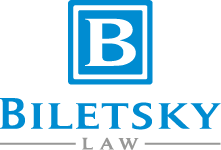Securities Exemption
 The Securities and Exchange Commmission (“SEC”) is a federal regulatory agency in charge of, amongst other things, securities. Broadly defined, securities includes: “any note, stock, treasury stock, security future, bond, denture, evidence of indebtedness, certificate of interest or participation in any profit-sharing agreement…investment contract”…and so on (15 U.S.C § 77b).
The Securities and Exchange Commmission (“SEC”) is a federal regulatory agency in charge of, amongst other things, securities. Broadly defined, securities includes: “any note, stock, treasury stock, security future, bond, denture, evidence of indebtedness, certificate of interest or participation in any profit-sharing agreement…investment contract”…and so on (15 U.S.C § 77b).
The definition then continues on for an entire paragraph listing over 20 different “scenarios” that constitute a security. While what the definition of what is considered a security is a topic for another article, a security is generally anything that a person or entity gives to another, without actively being involved in the control of operations, while expecting a return. This pretty much encompasses most types of investment that a business may receive in starting their operations.
Businesses that receive these types of investments are typically required to register the security offering (the offering of the investment opportunity) with the SEC. The registration process can be complicated and expensive to the point of being cost prohibitive for many small businesses. It is because of this that the SEC has set out several exemptions where smaller or more limited investment offerings do not require such complicated filings.
The exemptions that will be discussed in this article are based out of Regulation D of the Securities Act of 1933. Keep in mind that there are other possible exemptions and also, in addition to having to fulfill the requirements under the SEC exemptions, that you will still need to comply with state “Blue Sky” laws which govern securities at a state level.
Within Regulation D are several rules. Rule 504, 505, and 506 will be the basis of discussion for this article. Within each rule there are several requirements, each of which must be met in order for the offering to qualify under the exemption. Keep in mind that this article is meant to be a very brief overview of the securities exemptions. Each rule has many nuisances and before relying on any rules, it is always best to speak to a securities attorney first.
Rule 504
Businesses relying on Rule 504 may offer and sell up to $1,000,000 of their securities in any 12-month period. Under Rule 504, the company generally cannot solicit or advertise their securities to the public. Also, those who purchase the securities may have “restricted securities” which means that they may not sell the securities to a third party.
Companies wishing to rely on Rule 504 and who wish to advertise or solicit their securities must meet the following requirements:
• Registering the offering in a states that requires a publicly filed registration statement and delivery of a substantive disclosure document to investors;
• Delivery of the disclosure documents required by the state where the company registered the offering to all purchasers; or
• Selling exclusively according to state law exemptions that permit general solicitation and advertising, so long as the company sells only to “accredited investors.”
An accredited investor is a person or entity with a certain level of sophistication or net worth to where the investor is likely aware and capable of taking the risks involved with the investment.
Rule 505
To qualify under Rule 505, a company:
• Can only offer and sell up to $5 million of its securities in any 12-month period;
• May sell to an unlimited number of “accredited investors” and up to 35 other persons who do not need to satisfy the sophistication or wealth standards associated with other exemptions;
• Must inform purchasers that they received “restricted” securities, meaning that the securities cannot be sold for six months or longer without registering them; and
• Cannot use general solicitation or advertising to sell the securities.
As far as the information that is required to be given to investors, the company must give non-accredited investors disclosure documents that are equal to those used in registered offerings. Companys may determine what information to give to accredited investors so long as it does not violate the antifraud prohibitions of the federal securities laws.
Rule 506
Under Rule 506, a company can raise an unlimited amount of money. There are actually two distinct exemptions that fall under Rule 506.
Under Rule 506(b)
• The company cannot use general solicitation or advertising to market the securities;
• The company may sell its securities to an unlimited number of “accredited investors” and up to 35 other purchases.
Unlike Rule 505, all non-accredited investors must be sophisticated
• Companies decide what information to give to accredited investors, but companies must give non-accredited investors disclosure documents that are similar to those used in registered offerings. Any information that is provided to accredited investors, must be available to non-accredited investors as well;
• The company must be available to answer questions by prospective purchasers; and
• Financial statement requirements are the same as for Rule 505.
Under Rule 506(c), a company can broadly solicit and generally advertise the offering, but still be deemed to be undertaking a private offering within if:
• The investors in the offering are all accredited investors; and
• The company has taken reasonable steps to verify that its investors are accredited investors.
For more information about securities or for assistance in your business needs, contact Biletsky Law.
